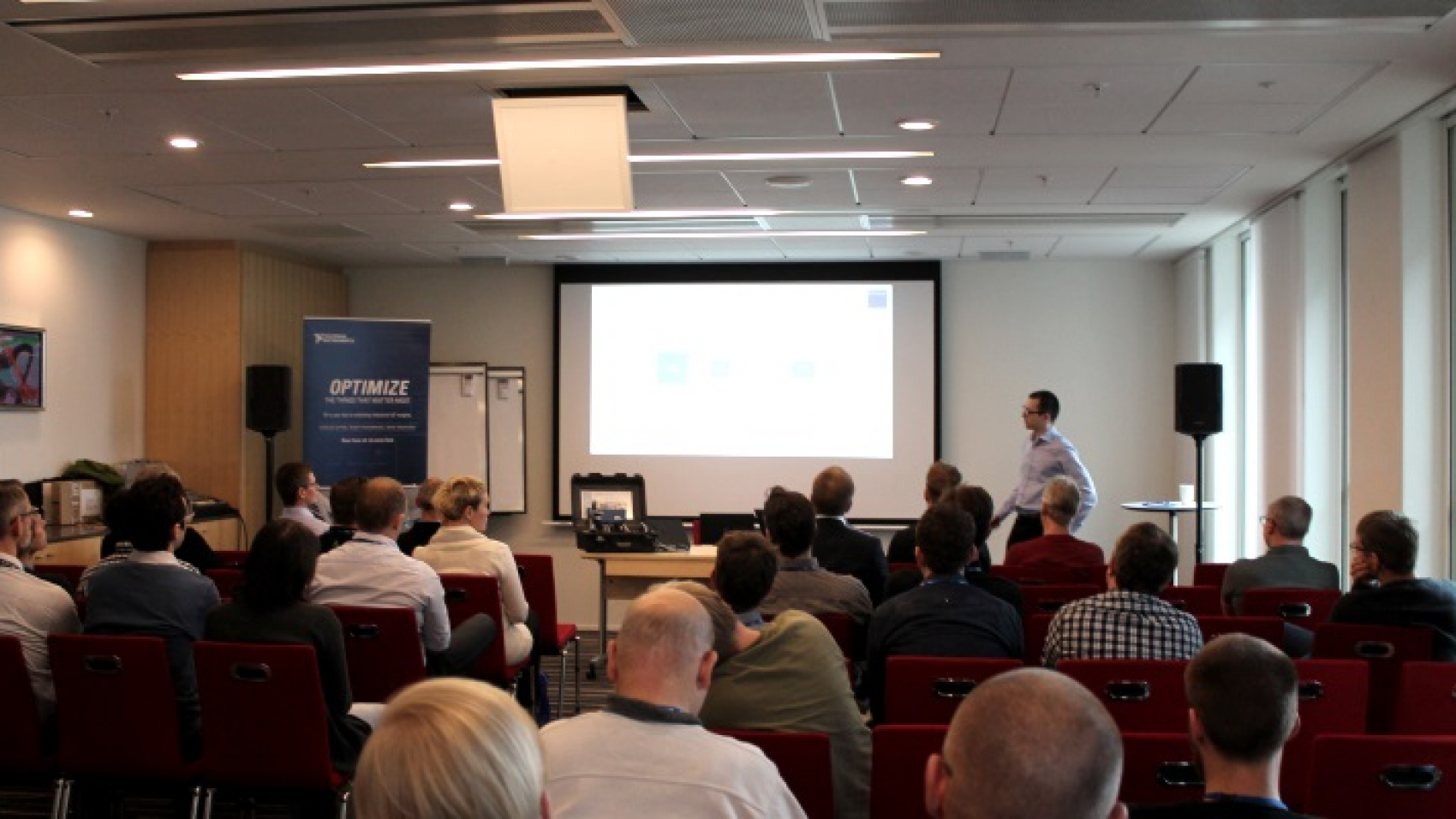“Building High Precision Instruments with CompactRIO”. That was the headline for one of the presentations at NIDays, and it was given by our founder and CTO, Steen Secher Schmidt. In his presentation he shared with the audience his expertise in terms of what it means to build instruments using CompactRIO.
Brief Summary of the Presentation
Did you miss out on Steen’s presentation at NIDays in Copenhagen? Here we have some bullet-points from the presentation:
- What makes an instrument user-defined?
- How do we make sure that user-defined instruments can be maintained and developed futher with minimal risk and effort?
- What are the most common mistakes in these types of projects, and how do we avoid them?
- Do user-defined instruments always equal successful projects?
- Why do we use GPower Actor Framework instead of NI Actor Framework?
- How do we combine CompactRIO and LabVIEW?
Why CompactRIO?
When we use CompactRIO we do so with the aim to improve advanced control- and monitoring systems regarding everything from sensors and cameras to motors and actuators. Furthermore, we use CompactRIO to simplify complex applications when we assemble a number of sub-systems into one whole system where multiple different components is connected directly to the instrument.
GPower Is Provider of Hardware from National Instruments
We are able to do so especially because we define the instrument’s software ourselves. Because of that, we can adjust the instruments as we see fit – even after implementation.


